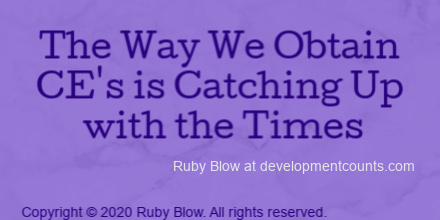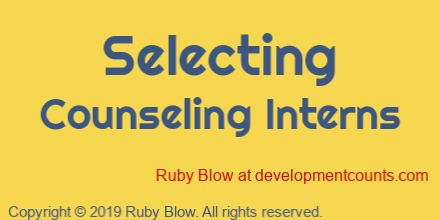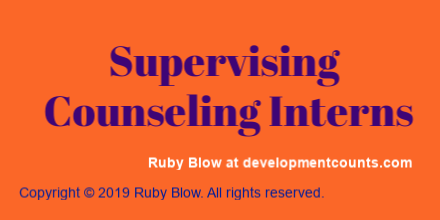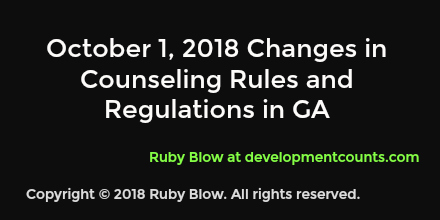What You Don’t Know Could Hurt You!
Whether you are offering continuing education to others or receiving continuing education, there many things you should know. The fact of the matter is that we are responsible for reading the GA Composite Board Rules that govern licensure for Counselors, Social Workers and Marriage & Family Therapists in Georgia.
When you receive your license and renew your license from the Georgia Composite Board, you are attesting to having read the board rules. You are also agreeing to follow them.
- Do you know the hours limitation set on every continuing education event? Particularly events that are not conferences? According to the board rules – no more than 20 hours, unless it is a conference. If you complete an event that breaks this standard (without authorization from the Composite Board), your hours obtained may not be accepted.
- Do you know how many core hours you must obtain and the format(s) in which you cannot receive core hours? You must obtain at least 15 core hours out of the total 35 CE hours required for renewal. You cannot obtain core hours via independent study. If you have more than 5 ethics hours, those additional ethics hours can be counted as core hours. You can’t obtain ethics hours online. If you don’t know what core hours are, you should absolutely read Chapter 135-9-.01 Continuing Education/Requirements. You can also check out the vlog post I recorded providing an explanation and tips regarding licensure renewal.
- Do you know which type of organizations are allowed to issue approve continuing education workshops? Generally speaking: state professional associations, national professional associations, training institutes, certifying bodies, and graduate programs in the specialty area. In some cases, such as if you are also obtaining or renewing certification, you really need to double check from whom the certifying organization accepts CE hours. Otherwise you could obtain CE’s that won’t be accepted.
Common Errors or Poor Practices by those Offering Continuing Education
- Confusing the difference between CE’s and CEU’s. CE’s are hour-for-hour content. So, if I offer a workshop saying you receive 5 CE’s, it means that you will receive 5 hours of educational content. Often people who don’t know the difference will say they are offering 5 CEU’s which means Continuing Education Units. A single CEU is 10 hours of content. So when someone says they are offering 5 CEU’s for 5 hours of content, an accurate description would be 0.5 CEU’s (which equals 5 hours of content). When I see CEU’s stated instead of CE’s and it is clear they are offering hour-for-hour and not units, it is a signal to me that they either don’t know the difference or felt comfortable misstating the terminology. Perhaps they are doing it because they know that many people don’t know the difference and that rather than informing the people they serve, they would rather give misinformation to them in language that is familiar in order to sell their event to you. Either way, I try to avoid events with that type of misstatement because it is likely that they will wittingly or unwittingly provide other types of misinformation.
- Advertising and offering an event citing “approval pending.” Sometimes events are not planned far enough in advance to include the approval information in the advertisement. In most cases people do receive their approval numbers prior to the start of their event. However, the statement “approval pending” is no guarantee that they will receive the approval in time.
- Offering specialized content to meet new legal requirements without a full understanding of the content or criteria for providing said content. It is hard to know who to trust. I wish that was not the case, but in my estimation it is a true statement. When the Georgia Composite Board sets new rules like the Telemental Health rule, many people and organizations stepped forward to provide training. Some with more or less expertise. Most of us were fortunate to find reliable and knowledgeable continuing education providers. Others attended events where they learned very little and felt taken advantage of by the facilitator. Last year when the Georgia State Legislature passed Senate Bill 319, it meant that the GA Composite Board would have to come up with some type of solution for those who did not have a 3 hour diagnosis course in graduate school. So far, the proposed solution is 45 hours of continuing education. The requirements for providers though are more complex than it might appear on the surface. If a licensee has to meet this criteria, they are entrusting that the provider they have selected understands the criteria for providing the CE event. They are trusting that the hours they obtain will be honored by the composite board.
- Providing poor content or misinformation. The point of continuing education is to learn. We are all a different stages in practice and at different levels of education. I don’t just mean how many years one has practiced or whether you have a Master’s, Specialist’s or Doctorate; I mean what your commitment has been to learning. If you don’t read content related to the field of practice including professional publications like journal articles or books that deepen your understanding; you are beholden to what someone else tells you. Ideally, continuing education events should expose you to familiar content, new content and opportunities for discussion. When it comes to legal and ethical matters, you should be reading the laws and ethical codes and related materials. Ideally, you should be able to verify content as it relates to legal or ethical matters. I’ve noticed that many professionals trust statements coming from people who have a vested information in providing misinformation (incidentally or on purpose). I think that this happens because many of us within the profession who need continuing education hours crave simplicity.
- We want it to be easy to get our continuing education. I get it. I wish it was easier too. Sometimes it will be and sometimes it won’t. Sometimes we have to do legwork, ask questions of people we can trust by personal relationship or reputation. Sometimes we have to go and read the board rules.
- We want for it to be cheap. When people offer a very low price per CE hour–beware. It costs money to provide CE events. People who offer cheap CE’s are often intentionally under-cutting competitors because it is the only way that they can compete. If a person can’t compete in the market based on a reasonable rate, they devalue continuing education. To me this akin to insurance companies lowering the usual and customary fee. It makes it more difficult for people to provide and receive quality therapy. Well, it is the same thing with CE’s.
- We want it to be fast. It takes time to integrate knowledge. Attending marathon CE events will get you to the certificate. However, it gives you very little time to integrate learning. Additionally, attending events last minute prior to renewal means that you have very limited options. Your CE time and money could be spent on content that is of interest to you and will advance you. Trying to get content quickly online or via independent study puts you at risk during an audit. Even though the GA Composite Board allows independent study, I think it is a bad idea to utilize this method. It is difficult to prove independent study. Some of us just want the hours on the certificate and in some cases people don’t care about the quality of the content.
You are responsible for your professional development- no one else!
Copyright © 2017 Ruby Blow. All rights reserved.
Share your thoughts on Linkedin, Facebook, Twitter or log in to one of your accounts below to comment. Subscribe to my YouTube channel.





